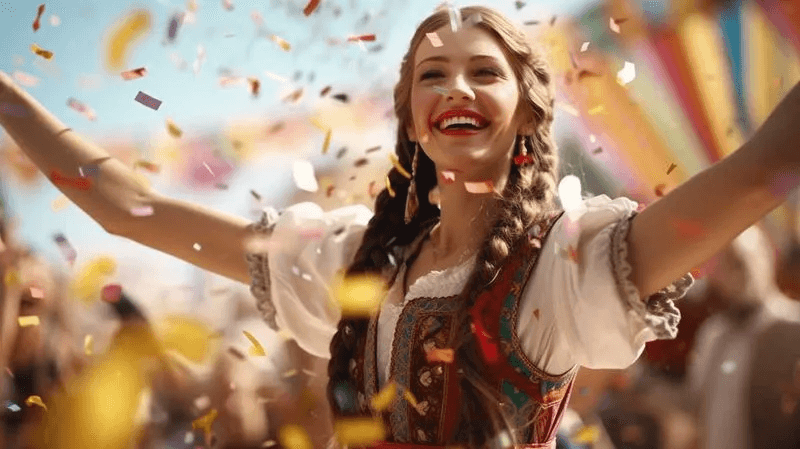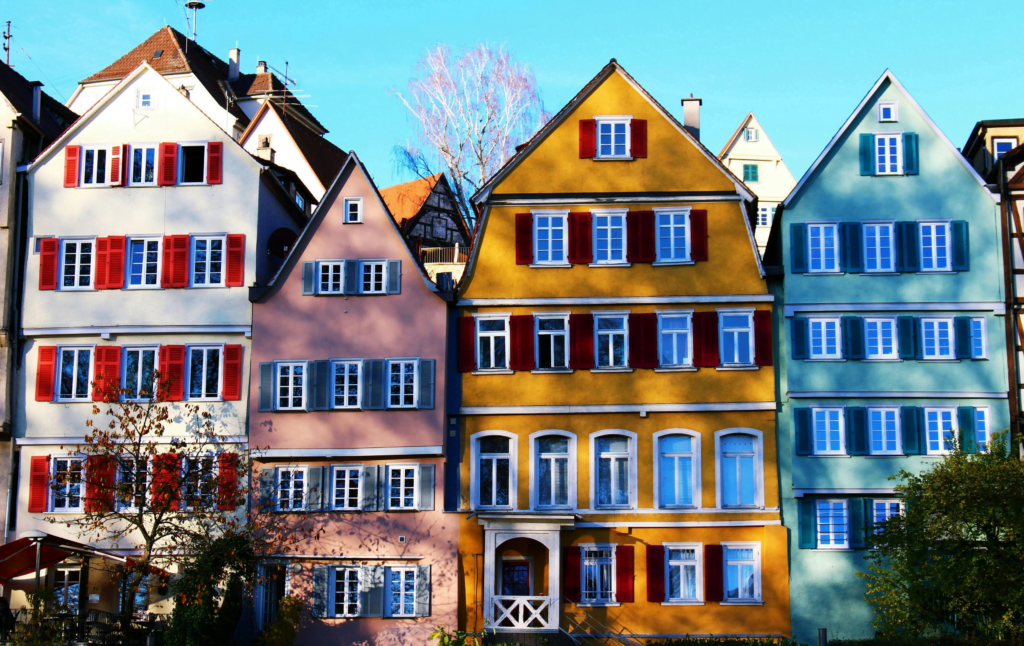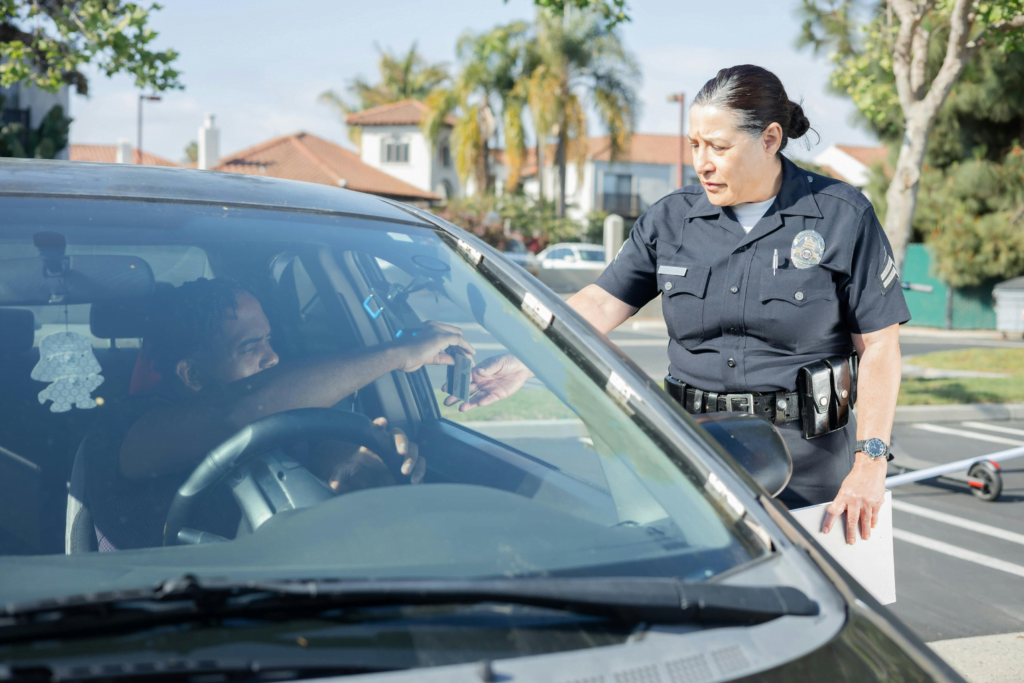
Germany is well-known for its rich cultural heritage and lively festivals, making it a wonderful destination for international students who want to immerse themselves in local traditions while studying abroad. Throughout the year, there are numerous festivals and celebrations that provide opportunities to explore German culture, make new friends, and experience the country’s vibrant atmosphere. From world-famous events like Oktoberfest to local celebrations in smaller towns, these festivals offer something for everyone. In this article, we’ll take a closer look at some of the most popular German festivals that international students can experience, along with their cultural significance, history, and practical tips for participation.
1. Oktoberfest (Munich)
When: Mid-September to early October
Where: Munich, Bavaria
Perhaps the most iconic festival in Germany, Oktoberfest is celebrated globally but its roots lie in Munich, where the event originated in 1810 as a wedding celebration for Crown Prince Ludwig. Today, it is a massive celebration of Bavarian culture, attracting millions of visitors every year. For international students, attending Oktoberfest is an opportunity to experience German traditions, cuisine, and, of course, beer.
What to Expect: Oktoberfest is centered around massive beer tents set up by Munich’s largest breweries, where festival-goers can enjoy traditional Bavarian beer served in large steins. However, Oktoberfest is much more than just a beer festival. There are parades, live music, folk dances, carnival rides, and stalls selling traditional Bavarian foods like pretzels, sausages, roast chicken, and more.
Tips for Attending:
- Arrive early to secure a spot in one of the beer tents, as they fill up quickly, especially on weekends.
- Wearing traditional Bavarian attire (Lederhosen for men and Dirndls for women) is common and will make you feel part of the event.
- Stay hydrated and pace yourself when drinking beer, as the servings are large.
- Book accommodation early, as Munich becomes very crowded during Oktoberfest.
2. Karneval/Fasching (Carnival)
When: February/March (before Lent)
Where: Cologne, Mainz, Düsseldorf (major cities), and across the Rhineland
Karneval, also known as Fasching or Fastnacht, is Germany’s version of Mardi Gras, and it’s celebrated with vibrant parades, colorful costumes, and street parties. Cologne, Mainz, and Düsseldorf host the largest and most extravagant Karneval events, drawing crowds from all over the world. This festival is deeply rooted in German history and represents a time for people to indulge in fun and revelry before the fasting period of Lent.
What to Expect: The festivities typically begin with “Weiberfastnacht” (Women’s Carnival Day) on the Thursday before Lent, where women symbolically take over towns by cutting men’s ties. The biggest celebration occurs on Rosenmontag (Rose Monday), featuring elaborate parades with floats, music, and candy being thrown into the crowd. People dress in imaginative costumes, and the atmosphere is lively and joyful.
Tips for Attending:
- Dress up! Wearing costumes is a must, and it’s part of the fun.
- Plan ahead if you want to visit Cologne, Düsseldorf, or Mainz, as accommodations fill up fast.
- Keep an eye on your belongings, as crowded events can be prime spots for pickpockets.
- Don’t miss out on the traditional sweets and pastries, such as “Berliner” (a type of jelly doughnut).
3. Weihnachtsmärkte (Christmas Markets)
When: Late November to December (Advent period)
Where: All across Germany (major cities: Nuremberg, Dresden, Berlin, Munich)
Germany’s Christmas markets, or “Weihnachtsmärkte,” are magical winter wonderlands that bring holiday cheer to towns and cities across the country. These markets are known for their charming wooden stalls, twinkling lights, and festive atmosphere, making them a favorite winter activity for both locals and international visitors. Each market has its own unique traditions, but all offer a delightful array of handmade gifts, seasonal food, and drinks.
What to Expect: Christmas markets feature beautifully decorated stalls selling handcrafted goods, including ornaments, toys, and seasonal items. Warm food and drinks are a highlight—think roasted chestnuts, grilled sausages, gingerbread, and mulled wine (“Glühwein”). Some markets, like Nuremberg’s Christkindlesmarkt, also have live performances and a strong emphasis on tradition.
Tips for Attending:
- Visit during the evening when the lights and decorations create a magical atmosphere.
- Try Glühwein (mulled wine) to keep warm, but be aware that it is quite potent.
- Wear warm clothing, as most markets are outdoors and the winter weather can be chilly.
- Bring cash, as some vendors may not accept credit cards.
4. Volksfeste (Folk Festivals)
When: Varies (spring, summer, and fall)
Where: Stuttgart, Munich, Nuremberg, and other cities
Volksfeste are traditional folk festivals celebrated across Germany, often involving beer, music, dancing, and local customs. Two of the most famous Volksfeste are the Cannstatter Volksfest in Stuttgart and the Nuremberg Volksfest. These festivals are very similar to Oktoberfest, but with fewer tourists and a more local feel.
What to Expect: Much like Oktoberfest, Volksfeste typically feature large beer tents, amusement rides, traditional food stalls, and live performances of folk music. They are great places to experience German hospitality and enjoy local traditions. Stuttgart’s Cannstatter Volksfest, for example, is one of the largest beer festivals in the world and includes agricultural exhibitions as well.
Tips for Attending:
- If you want a more local experience without the massive crowds of Oktoberfest, attending a Volksfest is a great alternative.
- Enjoy the carnival rides, which are a staple of most Volksfeste.
- Bring cash for food, drinks, and rides.
5. Walpurgisnacht (Walpurgis Night)
When: April 30th
Where: Harz Mountains (particularly in the town of Wernigerode)
Walpurgisnacht is a unique German festival that takes place on the night of April 30th, celebrating the arrival of spring. The festival has its origins in ancient pagan traditions, where people believed that witches gathered on the Brocken mountain in the Harz region to perform rituals. Today, the festival has evolved into a vibrant celebration, particularly in the Harz Mountains, where people dress as witches and devils, light bonfires, and celebrate throughout the night.
What to Expect: In the town of Wernigerode and surrounding areas, Walpurgisnacht is celebrated with theatrical performances, bonfires, and costume parties. There are witch parades, music, and storytelling, making it a fun and mysterious night. The event blends ancient folklore with modern festivities, providing a unique experience for international students interested in Germany’s mythological heritage.
Tips for Attending:
- Consider dressing up as a witch or devil to fully immerse yourself in the spirit of the festival.
- Head to the Harz Mountains for the most authentic experience, especially around the Brocken, the highest peak in the area.
- Keep warm, as the nights can still be quite cold in April.
6. Tag der Deutschen Einheit (Day of German Unity)
When: October 3rd
Where: Nationwide (major celebrations in Berlin)
Tag der Deutschen Einheit, or the Day of German Unity, is a national holiday commemorating the reunification of East and West Germany in 1990. This is one of the most significant days in German history, and it is marked with festivities throughout the country. The largest celebrations take place in Berlin, where the reunification took place.
What to Expect: In Berlin, the Day of German Unity is celebrated with concerts, speeches, and events at the Brandenburg Gate and other historical locations. Many cities also host fireworks, parades, and cultural exhibitions. It’s a day of reflection and celebration of German history and identity, making it a meaningful experience for international students to witness.
Tips for Attending:
- Berlin is the best place to experience this holiday, as the celebrations are largest and most historically significant there.
- Many museums and public spaces offer free admission or special events on this day, so take advantage of the opportunity to learn more about Germany’s history.
- Expect some businesses to be closed, as it is a public holiday.
7. Stuttgart Wine Festival
When: Late August to early September
Where: Stuttgart, Baden-Württemberg
The Stuttgart Wine Festival, also known as “Weindorf,” is one of the biggest and most famous wine festivals in Germany, held in the heart of the Baden-Württemberg region. Germany is renowned for its wine, especially Riesling, and this festival is a great way to experience the country’s wine culture.
What to Expect: The festival features over 120 wine booths where visitors can taste a wide variety of regional wines. The atmosphere is relaxed and cozy, with rustic wooden stalls decorated in traditional Swabian style. Alongside wine, visitors can enjoy regional delicacies like “Maultaschen” (Swabian ravioli), cheese platters, and sausages. The event also includes live music and folk performances.
Tips for Attending:
- Wine tastings are the highlight, so take the time to explore different varieties.
- Bring friends for a social experience, as the festival is known for its warm and friendly atmosphere.
- The festival is family-friendly and not as rowdy as some of the beer festivals, making it a more relaxed experience.
8. Berlin International Film Festival (Berlinale)
When: February
Where: Berlin
The Berlin International Film Festival, or Berlinale, is one of the most prestigious film festivals in the world and a highlight of the German cultural calendar. It attracts filmmakers, actors, and cinephiles from around the globe, offering a fantastic opportunity for international students to experience the world of cinema in a vibrant, multicultural environment.
What to Expect: Berlinale showcases a wide range of films, from mainstream blockbusters to independent and experimental cinema. The festival also includes panel discussions, workshops, and red-carpet events. Films are shown at various theaters across Berlin, and the atmosphere is lively and cosmopolitan.
Tips for Attending:
- Book tickets early, as popular screenings sell out quickly.
- Take advantage of student discounts on festival passes and tickets.
- Explore Berlin’s vibrant cultural scene while attending the festival, as the city offers countless galleries, museums, and historical sites.
Conclusion
Germany is home to a wide variety of festivals and celebrations, providing international students with countless opportunities to immerse themselves in local culture. From the beer-soaked festivities of Oktoberfest to the magical ambiance of Christmas markets, there’s a festival for every season and interest. Whether you’re studying in a large city or a small town, you’ll find that Germany’s festivals are a great way to experience the country’s traditions, make new friends, and create unforgettable memories.


